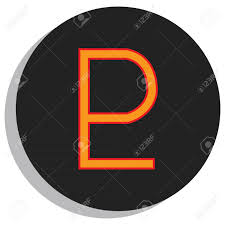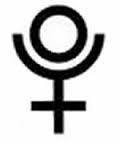Contempt is the tell-tale sign of an afflicted or badly placed Pluto in a birth chart. The subtle or not so subtle put-down which makes others feel they are beneath consideration or worthless. That plus a pathologically stubborn stonewalling of any pressure to change, or gain insights. As if shifting ground would bring humiliation; and taking in feedback would mean allowing an intrusion into heavily protected, private space. Though Plutonic types are often invasive of others themselves. Their status quo is defended fiercely, almost desperately, since it gives an illusion of stability, albeit for an essentially lonely state where there is no trust in the world or close relationships.
Power, control, possessiveness are the Pluto keywords and it really all comes down to a fear of submission, which latter would induce shame, obliteration of identity and a sense of being without value as a human being. Staying on top, which comes across as a smirking superiority and arrogance, is a defensive measure. Intimacy in relationships is tricky since deep connection feels like an invasion. “Where there is power there is not love.”
Vengefulness which is a Pluto/Scorpio trait is the inability to let go – of hurts and outworn relationships. Jealousy is a fear of loss, though often it kills the very thing that is prized. Manipulation is another trait which is a passive-aggressive way of exerting control, since it avoids confrontation which Pluto fears might lead to total destruction. There is volcanic anger inside Pluto, most often kept out of sight, being sensed by others, but not often acted out.
In mythology, Pluto is the god of the underworld (Hades) though he originally started as the god of wealth – gold, silver, diamonds. Since they came from underground he took over that realm. There was an 18th Century Plutonic theory that the earth was formed due to intense volcanic heat acting on rocks; while the opposing Neptunist theory was that the earth was formed from water with sediment laid down forming the land.
So Pluto is definitely of the earth and of hard substance, even when melted by intense heat.
He is most associated with the abduction of Persephone, the virgin daughter of Demeter, goddess of the harvest (Virgo), whom he tempted down to his lair with pretty flowers and then wouldn’t let her go. Demeter’s maternal grief was such that the seasons stopped and nothing grew. Faced with extinction Zeus (Jupiter) stepped into and brokered a deal whereby Persephone returned to her mother for the six months of summer and went back to Pluto in winter. The paradox of this story is that although it sounds initially like rape, it was also Persephone’s induction into adult womanhood, forcing her away from her jealous mother who wanted to keep her as an eternal child. Both Persephone and Demeter were central to the life-and-death nature rituals, dying in winter to be reborn in spring. The Eleusian Mysteries, over which they presided, were carried out in great secrecy, open only to initiates.
Pluto came to stand for not just wealth, but also sex, control/possession, secret societies, elites and the transformation process which involves actual as well as symbolic death. He was not known for promiscuity – and in some myths had a helmet of invisibility.
Where Pluto is in hard aspect to Sun and Moon or in 10th/4th or even 8th house, the individual grows up with a strong feeling that they have no choices in life; they are pawns on someone else’s chess board. That is a difficult pattern to break, and often for women with domineering fathers, it takes them into their forties – after the tr Pluto square natal Pluto – to step into their own identity where they are free to say ‘I am’ and ‘this is what I want’. For some the dominance/submission balance flips in early adult life and they become a control-freak themselves. But even where it doesn’t, there’s always a power play running at an unconscious level. What’s that old expression? – “There’s no one as powerful as a victim.” That’s Pluto in one of its manifestations.
Pluto by transit has a different feel since it is like being mown down by a steam-roller, completely flattened and buried in the mud, before emerging slowly to see a scarred landscape where the old has been demolished. Acute frustration and powerlessness of a scary variety can become all-consuming.
On second thoughts it isn’t different. It tells you what a natal Plutonic type is defending against all the time. In spiritual lalaland, Plutonic transformation is always talked about as if it was the ultimate desirable process. Yet it is gruesomely difficult and painful, a stripping away of everything that brought security, self-worth, identity, with only the light at the end of the tunnel (usually not visible for a long time) promising hope of a better rebuild on the far side.
The biblical myth of Job and the Sumerian legend of Inanna’s descent into the underworld are more truthful descriptions of what happens in the symbolic death and rebirth journey.
A strong natal Pluto has a significant upside – is good in crisis, doesn’t panic, gets a grip where everyone else is losing control, is often quite prescient so has ideas ahead of their time. But it has to be lived out. Overly submissive Plutonic types who were forced to be puppets on someone else’s strings early on and continue in adult life to be ‘nice’ and placatory, are continually hurt by the hostile responses they attract. They don’t understand the power signals they give out unconsciously, since they are still living with the inner image of themselves as a useless doormat. Owning power in a healthy way is not easy especially for women, and most resist turning into the controlling adult who made their childhood a misery.
The most useful motto for Pluto is – ‘influence not power’. That and finding the right lifestyle in which Pluto’s intensity, capacity to regenerate situations and cope with crisis can be used constructively. Yet for all that there is something impenetrable about Pluto and difficult for the individual to grasp in their birth chart, which may be to do with its darkness and inherently primitive/primeval nature.



Well this is a bit of a worry. In my natal chart I have: sun opp. pluto…moon sq. pluto…saturn sq pluto…jupiter conj. pluto…mars trine pluto…and neptune sextile pluto…(pluto in the 6th)…I am not sure contempt is the right word in my case – “thwarted” seems to be a better fit.
Marjorie: Thanks so much for these analysis! I was born with Uranus/Pluto in the 12th so I have struggled so much with authority issues my entire life. I experienced childhood abuse from my mother who had schizophrenia and after my parent’s divorce, I then had to endure abuse from a horribly dark and insecure stepmother because my father had custody of me. I didn’t realize until later when I was diagnosed with PTSD, why I had been haunted by nightmares and reacted so primitively to outside ‘threats’ namely other adults who shared similar characteristics to those that had abused me. I am now 50 and I am still trying to unravel the knots of my identity. Psychotherapy has really helped to save my life, but so had trying to learn basic astrology so I can understand myself better. Your posts really help tremendously! Thanks again!
Gina, Glad it helps. The 12th house can refer to pregnancy, ie you when you were developing inside your mother. If she was disturbed, then you’ll have absorbed all her fear and unpredictability. The problem with Uranus Pluto is that it’s the ultimate double message – possessiveness and rejection at the same time. Pluto hangs on and Uranus does the opposite.
Regrettably through life we all unwittingly continue to ‘attract’ people who fit with our old patterns until such time as we understand what we’re doing and break the old chains. Good luck.
Interesting points. I like your analysis of Pluto in your recent post, agree about the impenetrability thing, although I still think Neptune is nearly as difficult as one grabs for what is not there.
Agree about the Pluto traits of control. I have an 8th house Sun/Mars/Moon and all of them square Pluto in Scorpio, so I have an incredibly focused concentration of this energy. Always a need to stay on top of things, hate being taken by surprise because of the humiliation aspects of being ‘outwitted’ in this regard, and an OVERWHELMING sense of how things ‘should’ be. On the other hand, in a crisis I will just take the reins and get things done, it’s very satisfying to do that.
Just an addendum to that, my response to a crisis is driven by a desire to not be humiliated through being overpowered by the situation. I’ll always try and find a way through, or come up with some solution, just because it means in my own mind and to my ego that I’m still ‘in control’ and I’ve not been humiliated by being ‘defeated’ because I can’t find a way through. I also have a Sag ascendant so I often ally this desire with putting a gloss on things and trying to bring out the positives in situations, because I just simply don’t want to admit ‘yeah, this is the worst it’s ever been’ – I find having to admit that humiliating as well. I can’t explain the dynamics of this, it’s just how my mind works.
Example of how this works – If I’m going on a journey with other people somewhere and our route is blocked by some kind of event [weather-related, for example], I will always be searching out alternative routes to our destination and trying to take control by navigating us round the obstacles. If successful we will arrive at our destination, say, half an hour later than planned and I’ll be all like “See, not so bad now was it, we’re here, only a little later.” I just won’t be ‘beaten’ in situations like this – it’s too humiliating/shaming to my ego when I realise I don’t have the power to get round things in this regard.
I’m interested in politics but there’s no way with these energies in my chart I would go in to that field – I have virtually no patience and I’d always want things my way. The darkest aspect of my Plutonic energy is dictatorial. If you combined the political angle of Aneurin Bevan with the governing style of Margaret Thatcher or some of the more obsessively autocratic Roman Emperors that would be my political stance, and it wouldn’t be healthy for anyone. The only exception would be some huge crisis where I could take control and issue swift orders to sort things out until calmer waters were reached.
Final thoughts – dominance and submission are two sides of the same coin. I’m a control freak but I also have a pretty submissive side to my thoughts and personality which interests and frightens me at the same time.
“They don’t understand the power signals they give out unconsciously…” Now at nearly 61, I’m still dealing with this reaction/response from people and colleagues – when I walk into a room, half the people want to kill me and the other half want to run away. Quite frustrating.